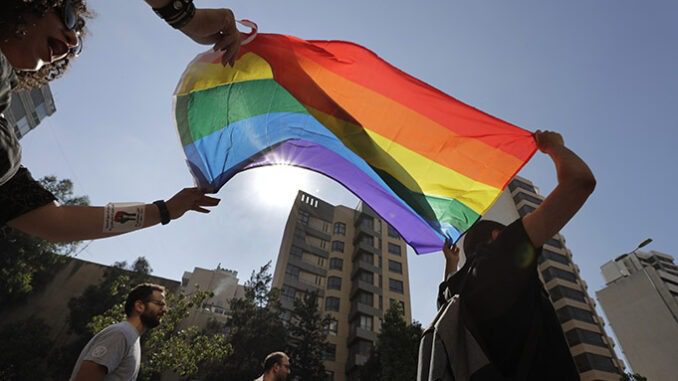
DURHAM — In early 2021, local governments in most urban centers across North Carolina are either discussing, or have already passed, LGBTQ anti-discrimination ordinances after the sunsetting of a bill late last year appeared to open the door to the option. Mecklenburg County, which is home to Charlotte and its major suburbs; Orange County, as well as its three major municipalities of Chapel Hill, Carrboro and Hillsborough; Durham; and Greensboro have all passed a Sexual Orientation and Gender Identity, or SOGI, ordinance.
Boone, Wilmington, Winston-Salem, Harrisburg and other municipalities are considering similar measures.
On Dec. 1, 2020, a portion of House Bill 142, a compromise bill to end the HB-2 “Bathroom Bill” fight, expired. The portion had prohibited local governments from passing any ordinance “regulating private employment practices or regulating public accommodations,” a reference to SOGI ordinances like the 2016 one passed by Charlotte.
Once that prohibition on local ordinances regulating discrimination in employment and accommodations was removed, LGBTQ-rights groups, that same day, held an “HB-142 Sunset Townhall,” where they discussed their intentions of pushing for SOGI ordinances across the state. A website, ncisready.org, was also rolled out, encouraging visitors to click on their city’s name in order to contact all their local officials and tell them to advance the pro-LGBTQ ordinances. The campaign is also active on social media with an “NCisready” hashtag.
Despite the aggressive push from one side, Republican leadership at the General Assembly does not appear to want a repeat of the 2016 battle. On Jan. 12, after the passage of the first ordinance, Loretta Boniti of Spectrum News asked Senate Leader Phil Berger (R-Eden) what legislative Republicans’ response will be.
“I have not had a chance to read those ordinances, and I can also tell you, I’ve not had a member of the General Assembly come up to me and say, ‘We need to do something,’ or ‘We need not to do something,’” Berger said. “I think it is something that there will be some conversations about, but my thought is that the more likely next step for folks who have concerns about what may be taking place would be those people who would be directly impacted in a way on maybe their religious liberty or their businesses or something, I think the courts are probably the appropriate forum for us to look at.”
In Winston-Salem, one of the cities considering passing an ordinance, a couple weeks after the sunsetting of HB142, a Christian wedding-venue owner declined to host a lesbian wedding, prompting a backlash. The couple, Brianna May and Kasey Mayfield, wrote to The Warehouse on Ivy to express their interest in using the venue and later received a response saying, “As we would love to have you at our venue, unfortunately we do not host same sex marriage ceremonies. We do appreciate you considering us. Thanks.”
May wrote a Facebook post, which subsequently went viral, saying, “thanks so much to the warehouse on ivy for letting us know we’re not welcome.” Supporters of the couple then flooded Warehouse on Ivy’s online presence with one-star reviews and negative comments.
A representative of the venue provided a short statement to multiple media outlets, saying, “We allow anyone of any color, race, religion or belief to use our venue at any given time. Although we love and respect everyone in our community, [their] own decision making and beliefs, we also strongly believe in our Christian values.”
It is unclear how situations like this would be resolved in cities with SOGI ordinances versus ones without an ordinance, and the legal landscape on the issue federally is shifting quickly.
President Joe Biden, on his first day in office, expanded, by executive order, sexual orientation and gender identity protections, asserting that his administration is only implementing what’s required by the Supreme Court’s decision in Bostock v. Clayton County. This decision re-interpreted Title VII of the 1964 Civil Rights Act, which prohibits discrimination in employment based on sex, to now cover sexual orientation and gender identity under the word “sex.” The court argued that discriminating based on these factors would require considering their sex.
While Biden and LGBTQ groups say this decision means sex should be interpreted in this broader way in all parts of the Civil Rights Act, Justice Neil Gorsuch, who wrote the decision, said, “They say sex-segregated bathrooms, locker rooms, and dress codes will prove unsustainable after our decision today but none of these other laws are before us; we have not had the benefit of adversarial testing about the meaning of their terms, and we do not prejudge any such question today.”
Biden’s “Executive Order on Preventing and Combating Discrimination on the Basis of Gender Identity or Sexual Orientation” also directs federally funded schools to interpret Title IX on sex-discrimination in the schools in the same way Bostock does, saying, “Children should be able to learn without worrying about whether they will be denied access to the restroom, the locker room, or school sports.”




